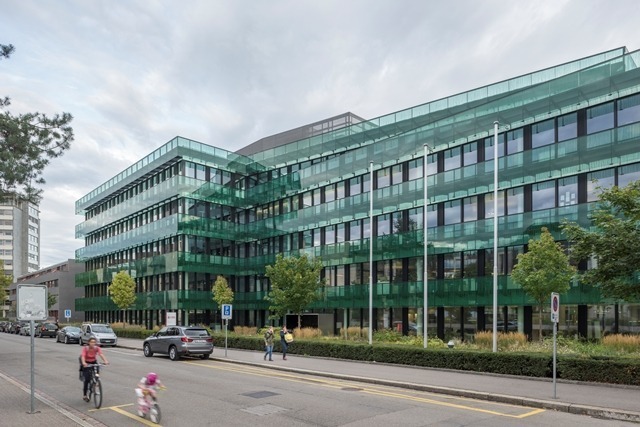Roche announced that its risdiplam has achieved primary endpoint in the FIREFISH study in infants with type 1 spinal muscular atrophy.

Roche branch offices in Basel (Credit: F. Hoffmann-La Roche Ltd.)
Subscribe to our email newsletter
The company has reported positive topline results from the pivotal part 2 of the FIREFISH study, which is assessing risdiplam in infants aged between one and seven months with type 1 spinal muscular atrophy (SMA).
Risdiplam, an investigational survival motor neuron-2 (SMN2) splicing modifier, has been designed to enhance and sustain SMN protein levels across the central nervous system and in peripheral tissues.
FIREFISH is a two-part, open-label, pivotal study in infants aged between one and seven months with Type 1 SMA.
The trial’s primary outcome measure was the proportion of infants sitting without support for at least five seconds at 12-months of treatment, evaluated by the Gross Motor Scale of the Bayley Scales of Infant and Toddler Development Third Edition (BSID-III).
According to the company, safety for risdiplam in the FIREFISH study was in line with its known safety profile and no new safety signals have been identified. Over 400 patients were treated with risdiplam across all studies to date.
Roche has taken the responsibility for the clinical development of risdiplam under collaboration with the SMA Foundation and PTC Therapeutics
With patients ranging from birth to 60 years old, risdiplam is being assessed in a broad clinical trial programme in SMA. The programme is comprised of patients previously treated with SMA-targeting therapies.
In November 2019, the company revealed positive results from part-2 of SUNFISH study, which is assessing the efficacy and safety of risdiplam in people aged between two and 25 years with Type 2 or 3 SMA.
During the same month, the US Food and Drug Administration granted priority review for risdiplam. The decision for approval is expected to be revealed in May this year.
Roche chief medical officer and global product development head Dr Levi Garraway said: “This large, global trial confirms the efficacy of risdiplam in an advanced and difficult-to-treat population, including many infants whose disease had already progressed significantly before starting treatment.”
In December 2019, Roche secured approval from the European Commission (EC) for its Kadcyla (trastuzumab emtansine) as an adjuvant (after surgery) treatment for people with HER2-positive early breast cancer (eBC).
 Advertise With UsAdvertise on our extensive network of industry websites and newsletters.
Advertise With UsAdvertise on our extensive network of industry websites and newsletters.
 Get the PBR newsletterSign up to our free email to get all the latest PBR
news.
Get the PBR newsletterSign up to our free email to get all the latest PBR
news.

